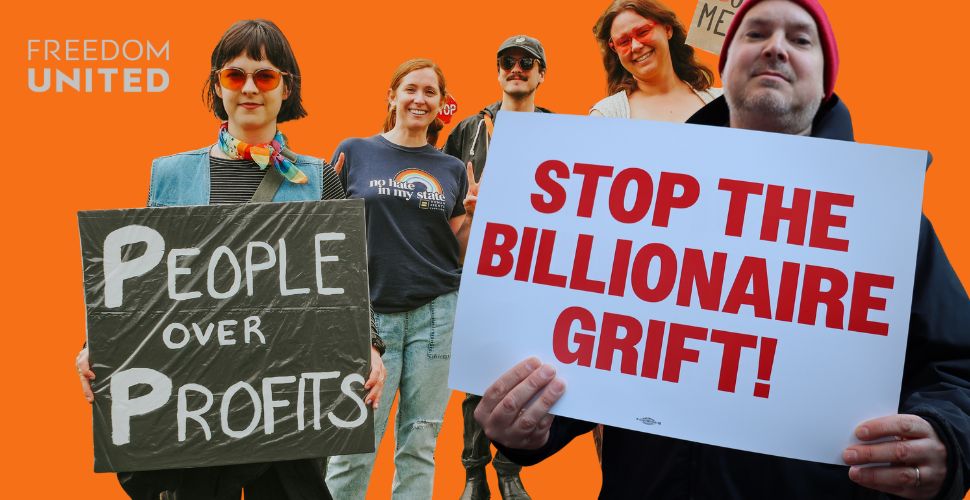A handful of men control more wealth than half the world. They build fortunes from fast fashion, luxury goods, tech, and delivery logistics—sectors greased by cheap labor, surveillance, and the quiet mechanics of modern slavery.
How the system works
Extreme wealth doesn’t emerge from thin air—it’s extracted. From workers in mines, fields, and factories. Undocumented labor in subcontracted warehouses. Government lobbying that keeps enforcement weak. Supply chains that are complex by design, where responsibility is always someone else’s problem.
While billionaires enjoy superyachts and stock options, the human cost of their empires is hidden—subcontracted out, pushed underground, or denied outright. Most face no consequences. Many stay silent. The rest pay lawyers and PR firms to make the outrage disappear.
These aren’t isolated incidents. These are business models.
Let’s name names
Some of the world’s richest men are linked to companies facing lawsuits, investigations, and exposés over serious allegations of forced labor and exploitation:
Elon Musk, the world’s richest man, leads Tesla — a company that continues to source cobalt from suppliers linked to forced child labor in the Democratic Republic of Congo. Though Tesla was sued by Congolese families whose children were killed or maimed in cobalt mines, the company has fought accountability at every step and refuses to disclose its full list of suppliers.1
Bernard Arnault, CEO of LVMH and the world’s second-richest man, oversees a luxury empire built on exclusivity — and reportedly, exploitation. His label Loro Piana was placed under court oversight in Italy after authorities found undocumented workers sleeping on site and forced to work 90-hour weeks for as little as $5/hour.2 The brand denied responsibility, but the courts didn’t.
Jeff Bezos, founder of Amazon, built a trillion-dollar empire on the backs of underpaid warehouse workers, punishing quotas, and opaque supply chains. Investigations have found that some Amazon-sold products originate from factories flagged for participation in China’s state-sponsored labor transfer programs where Uyghurs are shipped around the country and forced to work— yet the company has refused to publish a full list of suppliers or take adequate steps to verify labor conditions.3
Amancio Ortega, billionaire owner of Zara’s parent company Inditex, has grown rich off fast fashion — an industry built on speed, volume, and outsourced labor with little oversight. Zara’s parent company, Inditex, is under investigation in both France and Canada for allegedly benefiting from Uyghur forced labor in its supply chains.4 Neither Ortega nor Inditex has taken credible public steps to trace or clean up Zara’s supply chain.
These men aren’t exceptions. They are examples. More names will follow.
We’re putting them on notice
Because until the rich face pressure, nothing changes. Most never act unless forced to. And even when caught, their influence can make the consequences disappear.
They count on invisibility and they achieve it by controlling the narrative.
We’re here to prove them wrong.
Exploitation survives in silence. Let’s be loud.
They are not untouchable. Public pressure has forced companies to withdraw from investments, cancel partnerships, rebrand overnight. But it only works if we stand together.
By signing this petition, you help expose the systems that shield the powerful from accountability. Let’s show them that people are watching, organizing, and ready to demand more.
Add your voice now. Billionaires must not profit from human exploitation.
Notes:
- https://www.freedomunited.org/news/us-court-clears-tech-giants-of-child-labor/ ↩
- https://www.freedomunited.org/news/luxury-brand-factory-forced-labor-italy/ ↩
- https://www.freedomunited.org/news/amazon-suppliers-forced-labor/ ↩
- https://www.theguardian.com/world/2021/jul/02/france-investigates-fashion-brands-over-forced-uyghur-labour-claims ↩


Make your voice heard
Comment
10
Share this petition